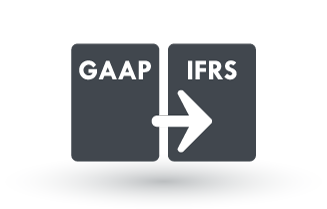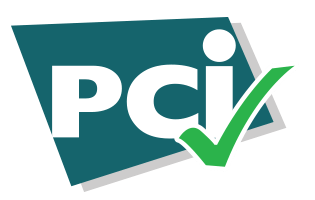Treasury Bank Organization TBO utilize Alternative Payment Routing (APR) this refers to using wholesale payments for international and domestic financial transactions beyond standard bank transfers, such as ACH payments or Wires. It avoid these by aims to optimize privacy, mealtime payment success rates, reduce costs, and improve its members experience by dynamically selecting the most efficient payment path under Treasury Bank’s banking policy.
Safety & Security
Treasury Bank Organization utilizes APR as the safest and most secure electronic funds transfer method for direct wholesale funds transfers as bank-to-bank B2B transfers. It encompasses the acceptance of both physical and digital payments at settlement bank as internal processing. This process involves settlement bank utilization of multiple processing sources and technologies, extending beyond credit cards to checks, mobile payments, and digital currencies.The APR method elected is for its guarantors and business partners due to their enhanced security and safety methods for its wholesale funding sources and policies to reduced third party fraud risk during transmission.
Choice of Law
While standard methods such Fed Wire and ACH transfers are also secure, they are generally used for consumer and domestic transactions. However, the Choice of Law allows B2B to be ideal for commercial non consumer large transactions, both domestically and internationally.
Privacy
APR enables the Treasury Bank Organization to utilize close looped non solicited transactions between its member investments and cash settlements. This means that electronic fund transfers are private data of its members cash pooling, that is held and liquidated between peer to peer closed systems under the organization’s (Private Policy) verses standard ACH and Fedwire open system to non members.
Key Aspects of APR:
- Intelligent AI Routing: This approach uses algorithms and data analysis to identify the most likely route for a payment to be successful, based on various factors like transaction value, customer risk profile, and payment method.
- Dynamic Routing: This means the payment route can change in real-time based on factors like payment processor availability, online QRC to payment app network congestion, or even a previous payment failure.
- Direct Acquirer Strategies: involves using QRC and stored value cards for desktop payment processing at acquirers location. Decrease third party interception and increase the likelihood of transaction success.
- API Payment Methods: This includes various methods beyond traditional bank transfers, such as digital wallets, mobile payments, or even offline payment options.
- Low Cost: Improved transaction success rates, faster processing times, reduced payment failures, and potentially lower costs for member merchants.
Credit Risk Management:
- Permanent Payment: This is non-provisional credit given as an on us to members account at bank as straight through payment in respect to a Regulation U purpose credit transfer entry outside of provisional credit as investment stock margin leverage and Real Time Payment RTP. This is outside the Federal Reserve and ACH operator for settlement.
- No Risk of Cash: This means that members bank account voids the risk of drawing out of the bank’s extended credit or covered funds, by members having commercial cash credit on hand.
- Leverage of real assets custody legal title as tangible and intangibles
- No Reversals or Charge backs: Cash is transferred directly from TBO’s members Treasury Bank account which void reversals and charge backs.
- Source of Proof and Transparent Member funds at Treasury Bank Portal are viewable by bank administrators securely online 24 hr a day. Data can be investigated and verify from the our members accounts to satisfy any KYC, AML or other compliance issues.
Regulatory Consideration:
Treasury Bank Organization acknowledge that Regulation E is under the Electronic Funds Transfer Act, that governs electronic fund transfers and Regulation J applies to collection checks and other items when they are consumer EFT debit card, ACH, or prepaid account transfer. However Treasury Bank funds transfers are proprietary to its members only as business partners which is outside of Regulation E and J of the Federal Reserve. Treasury Bank shares, funds transfer, and deposit orders are governed by its administrative ordinance that has adopted the Uniform Commercial Code UCC rules of each state of its operations as its elected standardized commercial law. under Article 4 and 4A.
- Error Resolution: It investigate and resolve errors in P2P transfers, especially unauthorized ones.
- Financial Institution Status: Treasury Bank Organization is considered a non-bank P2P payment provider and is considered a financial institution that holds non-consumer accounts that issues access devices for non ACH or non Fed Wire EFT services.
- Proprietary communication system other than Federal Reserve under UCC 4a206. In respect to12 CFR Appendix B
- Payment to Respective Owners under UCC 3-602
Treasury comply with International and US Travel Rule requirement for all financial institutions under guidance updates the document “Funds ‘Travel’ Regulations: Questions & Answers” inline with the World Bank FAST Toolkit to include specific information when transmitting funds.
Here are the key requirements:
- the name of the transmittor
- the account number of the transmittor, if used
- the address of the transmittor
- the identity of the transmittor’s financial institution
- the amount of the transmittal order
- the execution date of the transmittal order
- the identity of the recipient’s financial institution
and if received
- the name of the recipient
- the address of the recipient
- the account number of the recipient, and
- any other specific identifier of the recipient.
Exceptions to these requirements
- Domestic bank;
- Wholly owned domestic subsidiary of a domestic bank;
- Domestic broker or dealer in securities;
- Wholly owned domestic subsidiary of a domestic broker or dealer in securities;
- Domestic futures commission merchant or an introducing broker in commodities;
- Wholly owned domestic subsidiary of a domestic futures commission merchant or an introducing broker in commodities;
- The United States;
- Federal agency or instrumentality;
- State or local government; State or local agency or instrumentality; or
- Domestic mutual fund.
Treasury Bank Organization is fully aware that compliance with the Travel Rule is essential for preventing money laundering and ensuring transparency in financial transactions.




